$349.99
Description: Discover adorable Baby Indian Star Tortoises for sale. These captive bred tortoises feature stunning star patterns on their shells. Perfect for collectors or first-time owners.
Indian Star Tortoise For Sale: Everything You Need to Know Before Getting One
Indian star tortoise for sale, the Indian star tortoise (*Geochelone elegans*) is one of the most stunning tortoise species, famous for its striking, star-like patterns on its shell. It’s no surprise that it’s a favorite among reptile lovers and exotic pet enthusiasts. Before you jump into owning one, though, it’s crucial to understand their specific care requirements, personality traits, and what you can expect in terms of pricing. If you’re on the lookout for an *Indian star tortoise for sale* or simply want to learn more about this remarkable creature, this guide will give you everything you need to know.
What Makes the Indian Star Tortoise Unique?
The most captivating feature of the Indian star tortoise is its shell, covered with beautiful, radiating star-like patterns. This isn’t just for show; these patterns help them blend into the sunny, dry environments of their native habitats, which include parts of India, Sri Lanka, and Pakistan.
– **Size**: Indian star tortoises stay relatively small. Males usually grow to about 5-8 inches, while females can reach up to 12 inches.
– **Weight**: As adults, they generally weigh between 3 and 6 pounds.
– **Lifespan**: These tortoises can live anywhere from 30 to 50 years in captivity, so owning one is a long-term commitment!
These manageable sizes and their gentle temperament make them highly desirable for people looking to add a tortoise to their household.
Personality and Behavior
Indian star tortoises are known for being shy and mild-mannered. If they feel threatened, they’ll retreat into their shell rather than show aggression. While they may not be as interactive as some other pets, with time and patience, they can get used to you being around.
One important thing to keep in mind is that Indian star tortoises don’t particularly enjoy being handled too often. Too much handling can stress them out, which can lead to health problems. If you’re considering buying an *Indian tortoise for sale*, it’s essential to provide them with a calm environment where they feel safe.
Setting Up the Perfect Home for Your Tortoise
Before bringing home an *Indian star tortoise for sale*, you need to be prepared to create the right habitat for them. These tortoises come from semi-arid, dry regions, so replicating that environment is key to keeping them happy and healthy.
1. **Size of the Enclosure**: At a minimum, you should aim for a 4×4-foot enclosure for one tortoise. If you’re housing more than one, you’ll need even more space. Outdoor enclosures work great if you live in a warmer climate, but indoor setups can be equally effective as long as you provide proper lighting and heating.
2. **Substrate**: The floor of their enclosure should be covered with a substrate that retains moisture but stays dry on the surface. A mix of coconut coir, moss, and sand works well for maintaining humidity levels while keeping the surface relatively dry.
3. **Temperature and Humidity**: Your tortoise’s enclosure should stay between 80°F and 90°F during the day, with a basking area that reaches 95°F to 100°F. At night, temperatures can drop to about 70°F. Humidity should be kept around 60-70%, as low humidity can cause serious health problems.
4. **Lighting**: Like all reptiles, Indian star tortoises need exposure to UVB light to help them process calcium. Without this, they can develop shell deformities. Make sure your setup includes a UVB light for at least 10-12 hours a day.
5. **Hiding Spots**: Tortoises are naturally shy, so make sure they have plenty of places to hide, like logs, rocks, or specially designed tortoise hides.
What to Feed Your Indian Star Tortoise
Diet is a key aspect of keeping your tortoise healthy. Indian star tortoises are herbivores, and their diet should mimic what they’d eat in the wild.
– **Leafy Greens**: The bulk of their diet should come from leafy greens like dandelion greens, kale, collard greens, and mustard greens. You can also offer them fibrous weeds and grasses.
– **Vegetables**: You can add vegetables like squash, bell peppers, and carrots for variety. However, avoid watery vegetables like cucumbers and iceberg lettuce, as they don’t provide much nutrition.
– **Fruits**: Fruits should be an occasional treat. Too much fruit can lead to digestive issues, so limit it to once a week. Berries, apples, and melons are good options.
– **Calcium**: It’s essential that Indian star tortoises get enough calcium to support healthy shell and bone growth. You can sprinkle a calcium supplement on their food or offer them a cuttlebone.
Also, always provide fresh water and soak your tortoise in shallow water a couple of times a week to keep them hydrated.
Common Health Issues and How to Prevent Them
Indian star tortoises are fairly hardy, but like any pet, they can experience health issues if not cared for properly. Here are a few common ones to watch for:
1. **Respiratory Infections**: These can occur if your tortoise’s environment is too cold or dry. Symptoms include wheezing, nasal discharge, and lethargy. Maintaining the right temperature and humidity levels is key to preventing this.
2. **Shell Deformities**: Without proper UVB lighting and calcium, your tortoise could develop metabolic bone disease, which can lead to soft or misshapen shells.
3. **Pyramiding**: This condition causes the shell to grow unevenly, with raised, pyramid-like sections. It’s often caused by low humidity or a poor diet. Make sure your tortoise’s diet is rich in fiber and that their enclosure has the right humidity.
4. **Parasites**: Like most reptiles, Indian star tortoises can be prone to parasites. Regular vet checkups and maintaining a clean environment will help reduce the risk.
If you notice any changes in your tortoise’s behavior, appetite, or appearance, don’t hesitate to consult a reptile vet.
Breeding Indian Star Tortoises
If you’re interested in breeding Indian star tortoises, here’s what you need to know. These tortoises reach sexual maturity between 8 and 12 years old, with females maturing a bit later than males.
– **Egg Laying**: Females typically lay between 2 and 10 eggs in a clutch. You’ll need to provide a nesting area where she can safely lay her eggs.
– **Incubation**: The eggs will need to be incubated at 82°F to 89°F with humidity levels between 70% and 80%. Incubation can take anywhere from 90 to 170 days.
Are Indian Star Tortoises Endangered?
Yes, the Indian star tortoise is considered at risk due to illegal poaching and habitat loss. They’re protected under international laws, so if you’re planning to buy one, make sure it’s from a reputable breeder. Purchasing a tortoise from illegal sources can not only harm the species but also land you in legal trouble.
Before buying an *Indian tortoise for sale*, check local regulations to ensure you have the proper permits, if needed, to own one.
Pricing: How Much Does an Indian Star Tortoise Cost?
The *Indian star tortoise price* can vary significantly depending on factors like age, size, and overall health. Typically, you can expect to pay anywhere from $500 to $2,000. Hatchlings are generally less expensive, while older, established tortoises will likely cost more.
– **Where to Buy**: Always make sure you’re buying from a reputable breeder or exotic pet store. Avoid illegal or unethical sellers. It’s worth paying a little extra for a healthy, legally-sourced tortoise.
Before making a purchase, ask the seller about the tortoise’s health history and care needs to make sure you’re fully prepared to take on the responsibility.
Final Thoughts
Indian star tortoises are a unique and beautiful addition to any reptile collection. But owning one is not a decision to take lightly. Their long lifespan, specific care needs, and legal considerations require a serious commitment. If you’re up for the challenge, the reward is a gentle, quiet companion that can be with you for decades.
If you’re ready to buy an *Indian star tortoise for sale* or want more information on caring for these beautiful creatures, New York Reptiles is here to help. Reach out to us today to learn about availability, pricing, and the best care practices for your new tortoise!
Be the first to review “Indian Star Tortoise for Sale – Captive Bred Exotic Pets” Cancel reply
Related products
TORTOISE for sale
TORTOISE for sale
TORTOISE for sale
TORTOISE for sale
burmese brown mountain tortoise for sale | #1 best price in USA
TORTOISE for sale
TORTOISE for sale
Baby Giant South African Leopard Tortoise – Exotic Pets for Sale








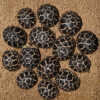
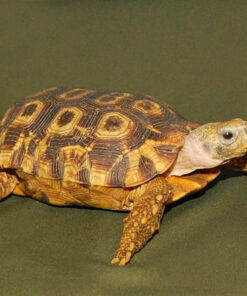
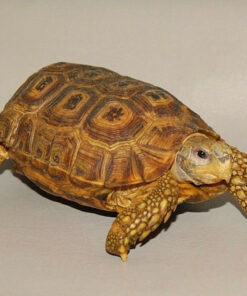
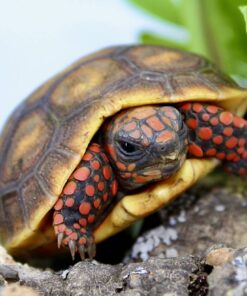
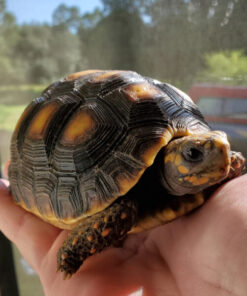
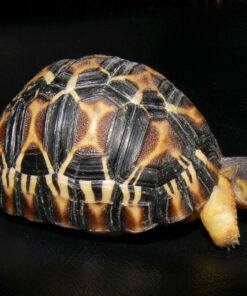
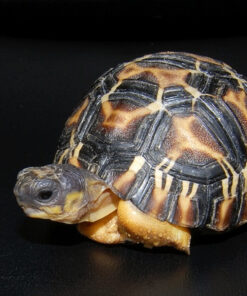
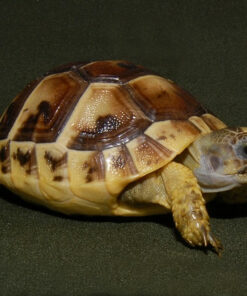
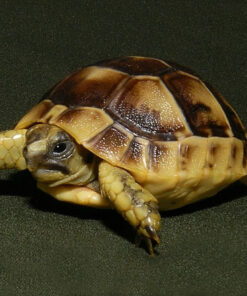
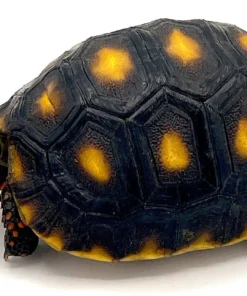
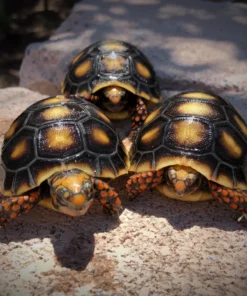
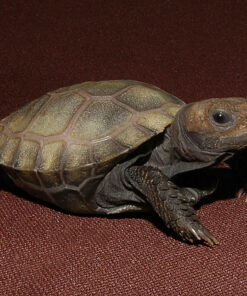
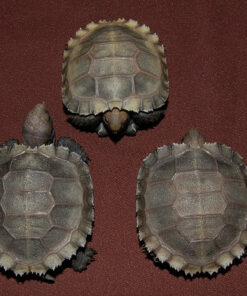
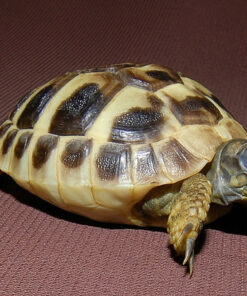
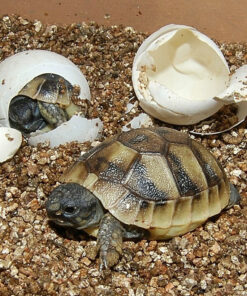
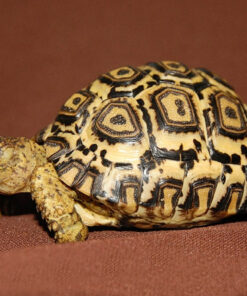
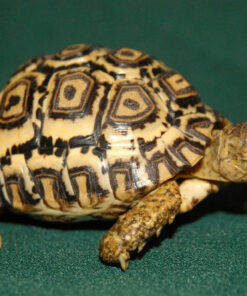
Reviews
There are no reviews yet.